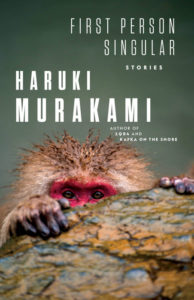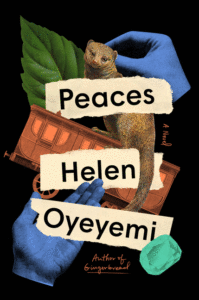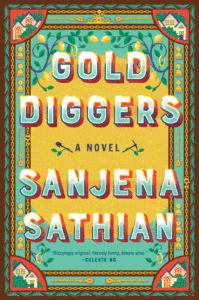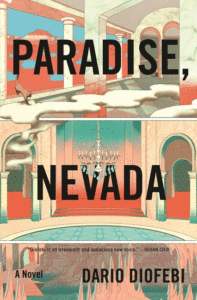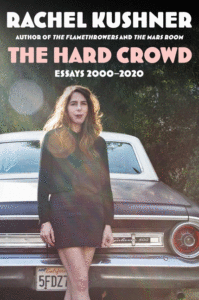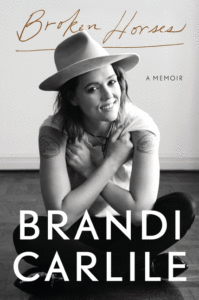Here are the best reviewed books of the week.
Haruki Murakami’s First Person Singular, Jeff VanderMeer’s Hummingbird Salamander, Rachel Kushner’s The Hard Crowd, and Brandi Carlile’s Broken Horses all feature among the Best Reviewed Books of the Week.
Brought to you by Book Marks, Lit Hub’s “Rotten Tomatoes for books.”
1. First Person Singular by Haruki Murakami
(Knopf)
7 Rave • 6 Positive • 2 Pan
“… brilliant … One can feel him easing up in the eight stories collected in First Person Singular, allowing his own voice—or what sounds like his own voice, wonderfully translated by Philip Gabriel—to enter the narratives, creating a confessional tone that reminded me of Alice Munro’s late work … Murakami is not popular throughout the world because he consciously integrates Western ideas and language into his fiction, but because his work—fueled by a tension with his forebears—fuses cultures, or perhaps leaps over them, defying time, beating like pop songs, touching universal nerves … That’s how Murakami’s stories often roll, luring us into strange moments, making us ask the questions we once chewed on about life, about what it means to bear the burden of selfhood, about how time seems to bend around us like the wind around the trees—invisible but clearly active … As a short story writer myself, I feel my own acute inability to urge the reader to spend time with this collection, to purchase a sequence of brief experiences that will not, as a novel might, immerse them in the hours of a steadily unfurling narrative. But these are flickering, quick times, and what a story can do that a novel can’t is pull us into the intricate motions of a single instant, expansive on both ends—the before of everything before the narrative begins, and the infinite future beyond the terminal sentences—and, like a song, or a poem, leave us wanting to reread, to rehear the voice, to relocate the pinpoint in the map of our lives.”
–David Means (The New York Times Book Review)
2. Peaces by Helen Oyeyemi
(Riverhead)
5 Rave • 5 Positive
Read an interview with Helen Oyeyemi here
“Books are made to get lost in, but the maze of Helen Oyeyemi’s brain seems to grow more complicated by the novel. No complaints here. The Gingerbread author returns with the enchanting Peaces … If you know Oyeyemi, you know this ride will give Snowpiercer a run for its money in the weirdness department. And sure enough, the mostly vacant train, populated by a few odd passengers and some mystically tinged worlds, provides the setting for the most surprising, confounding, and oddly insightful couple’s trip in recent literary history.”
–David Canfield (Entertainment Weekly)
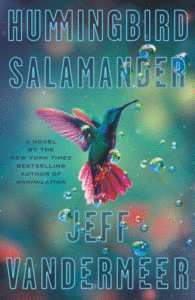
3. Hummingbird Salamander by Jeff VanderMeer
(MCD)
7 Rave • 1 Positive • 1 Mixed
“[VanderMeer] uses spy fiction to show how spy fiction can’t help us when the sky falls in. Or heats up … Like your favorite Hollywood blockbuster, Hummingbird Salamander features ecoterrorists, evil corporations, a race to defuse doomsday weapons, gunfire, fisticuffs, action sequences and hair-raising escapes … like Ling Ma and Holroyde, VanderMeer introduces all this genre fun mostly to subvert it … part of what the novel is doing is showing how humans are connected to the rest of nature even when we’d rather not think about it. The planet on which Jane gets her coffee from some barista is the same in which the last hummingbird dies in a dwindling forest … The secret interconnections of the spy novel map onto the secret interconnections of the natural world. And the unfurling plot mirrors the unraveling ecosystem … the book’s redemption isn’t imaginable in the terms of a pulp spy novel. VanderMeer and some of his peers struggle with genre because they understand that the ecological crisis is also a narrative crisis. When all you have are the old stories, how can you speak a new ending?”
–Noah Berlatsky (The Los Angeles Times)
4. Gold Diggers by Sanjena Sathian
(Penguin)
5 Rave • 4 Positive
Read Sanjena Sathian on finding the balance between solitude and community at an MFA program here
“Sanjena Sathian’s debut novel, Gold Diggers, is full of voice … [a] rollicking, at times painful, and ultimately intensely satisfying tale … One of the wonderful things about Sathian’s writing is how imperfect she allows Neil to be: he can be shallow, vain, awkward, and selfish. Yet it’s so easy to root for him, because he’s just so terribly alive, his adult narration inhabiting his teenage self honestly, without sugarcoating … [Eternalism] also lies at the heart of the book’s structure, which twines historical fictions and truths and family histories into the main narrative, exemplifying how time both does and does not make a linear kind of sense, how past, present, and future’s paths collide at times in unexpected ways.”
–Ilana Masad (NPR)
5. Paradise, Nevada by David Diofebi
(Bloomsbury)
4 Rave • 2 Positive • 1 Mixed
“… sprawling and colorful … The novel ably bounces between these four narratives, while dozens of secondary characters weave into each, all moving, slow and steady, toward a climactic event. The novel’s rich details are both its allure and its occasional undoing. The motivations and inner struggles of the main quartet are palpable … How each comes to terms with, or pushes against, these issues makes the book prescient and powerful. At the same time, the story is larded by extraneous information, as of the minutiae of poker play. That it still manages to pack a sizable punch is due to the strength and depth of its tart narrative. Sneaking sly wit and subtle profundities into its wide-ranging narrative, Paradise, Nevada is a wonderful saga that’s both reflective of, and critical of, our modern age.”
–Robert Ham (Foreword Reviews)
**
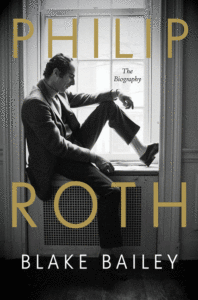
1. Philip Roth: The Biography by Blake Bailey
(W. W. Norton & Company)
9 Rave • 5 Positive • 4 Mixed • 2 Pan
“Bailey’s comprehensive life of Philip Roth—to tell it outright—is a narrative masterwork both of wholeness and particularity, of crises wedded to character, of character erupting into insight, insight into desire, and desire into destiny. Roth was never to be a mute inglorious Milton. To imagine him without fame is to strip him bare … The biographer’s unintrusive everyday prose is unseen and unheard; yet under Bailey’s strong light what remains on the page is one writer’s life as it was lived, and—almost—as it was felt.”
–Cynthia Ozick (The New York Times Book Review)
2. The Hard Crowd: Essays 2000-2020 by Rachel Kushner
(Scribner)
7 Rave • 5 Positive
“Kushner, primarily known for her fiction, proves she’s also a master essayist in The Hard Crowd: 19 pieces of memoir and criticism that display her omnivorous tastes in literature, art and history … her writing is tough and skulky, snaking through the past, nearly emotionally impenetrable at times. Kushner involves herself only when necessary and prefers, like most fiction writers, to look outward … In looking outward, she renders the world coolly, encapsulating an entire mood in a single stroke … Throughout these essays, Kushner steals back subjects normally hopelessly tied to masculinity, like classic cars, dive bars, Marxism and motorcycles. Despite these essays spanning two decades, there’s something essentially Kushner-esque threaded throughout, a sense of cool girl remove, which is tempered by her engaged activist interests in prison abolition and workers rights. While this collection is best for fans, it’s also a good introduction for the uninitiated, as long as they don’t mind passing brainy references to Lacan and Cixous … Despite Kushner’s reluctance to take center stage, the personal essays shine … References to since-shuttered establishments vividly evoke an era when motorcycle mechanics and bike messengers could afford to live in the city, and Kushner ultimately delivers a heavy hit of nostalgia that will make any San Franciscan’s heart lurch.”
–Anisse Gross (The San Francisco Chronicle)
3. Broken Horses: A Memoir by Brandi Carlile
(Crown)
7 Rave • 1 Positive
“If you’re already a Brandi Carlile fan (I don’t think there’s any musician I’ve listened to more in the last five years), there’s an excellent chance you’ll find Broken Horses charming, funny, illuminating and poignant. If you’re not a fan, Broken Horses might well make you into one, especially now, because the book feels like the antithesis of social distancing — replete with Carlile and her identical twin collaborators Tim and Phil Hanseroth touring in vans and buses (more recently with their wives and children in tow) and performing songs they’ve written together to celebratory crowds. Carlile’s warmly colloquial tone evokes listening to stories, possibly in a bar, told by a friend who leads a life far more interesting than your own. Each mostly chronological chapter concludes with a plethora of photos, handwritten captions and song lyrics by Carlile and others … That I finished reading without a clear sense of the personalities of either Hanseroth brother could reflect Carlile’s deference to their privacy or a blurring between their identities and hers.”
–Curtis Sittenfeld (The New York Times Book Review)
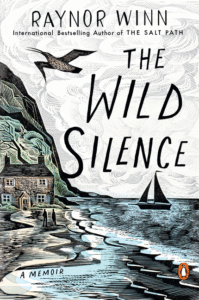
4. The Wild Silence: A Memoir by Raynor Winn
(Penguin)
6 Rave • 1 Positive
“Written in the same lushly descriptive, emotive vein, this sequel conveys how their experience—and her book about it—changed their lives. But where The Salt Path stayed on a relatively narrow but propulsive narrative track, The Wild Silence roams further afield. It’s a more expansive memoir, ranging from backstory to update, with meditations on death, sustainable farming, trust, the meaning of home and the central importance of deep engagement with the great outdoors … As always, Ms. Winn exquisitely captures the raw intensity of untamed environments … a full-throated paean to the fundamental importance of nature in all its glory, fury and impermanence … as Ms. Winn makes clear in this heartfelt and heartening book, such bracing challenges put them in touch with the ‘roaring, wild silence’ that sustains them.”
–Heller McAlpin (The Wall Street Journal)
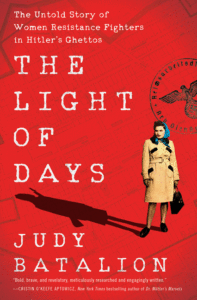
5. The Light of Days by Judy Batalion
(William Morrow)
4 Rave • 4 Positive
Read an excerpt from The Light of Days here
“Memoirist Batalion (White Walls) delivers a remarkable portrait of young Jewish women who fought in the Polish resistance during WWII … Batalion allows her subjects to speak for themselves whenever possible, weaving a vast amount of research material into a cohesive and dramatic narrative. This poignant history pays vivid tribute to ‘the breadth and scope of female courage.’”




